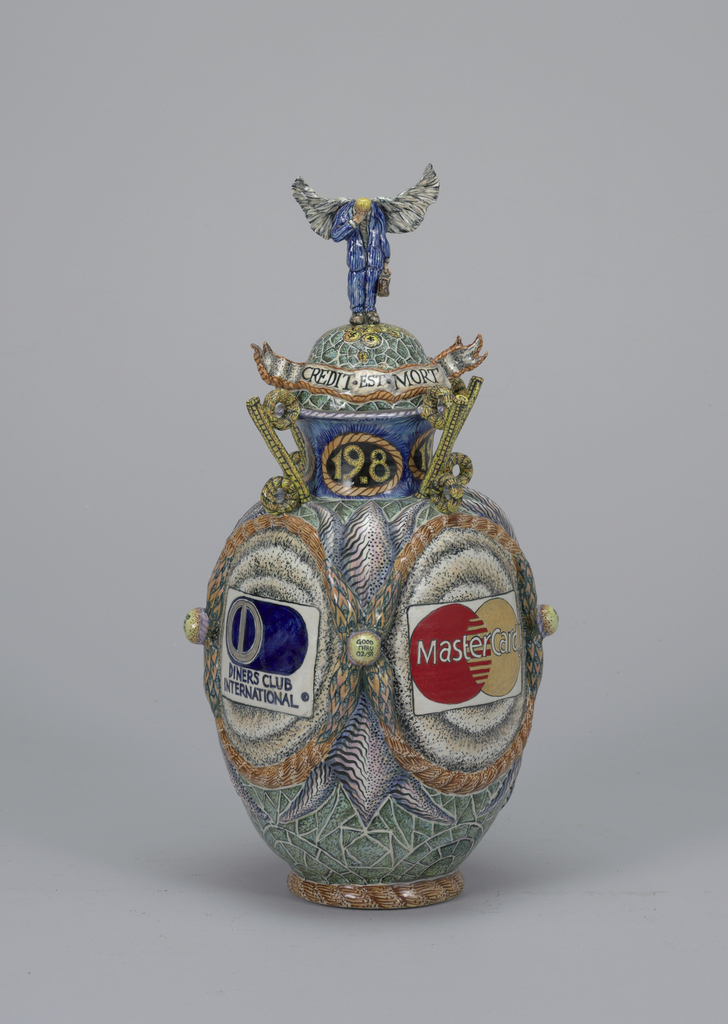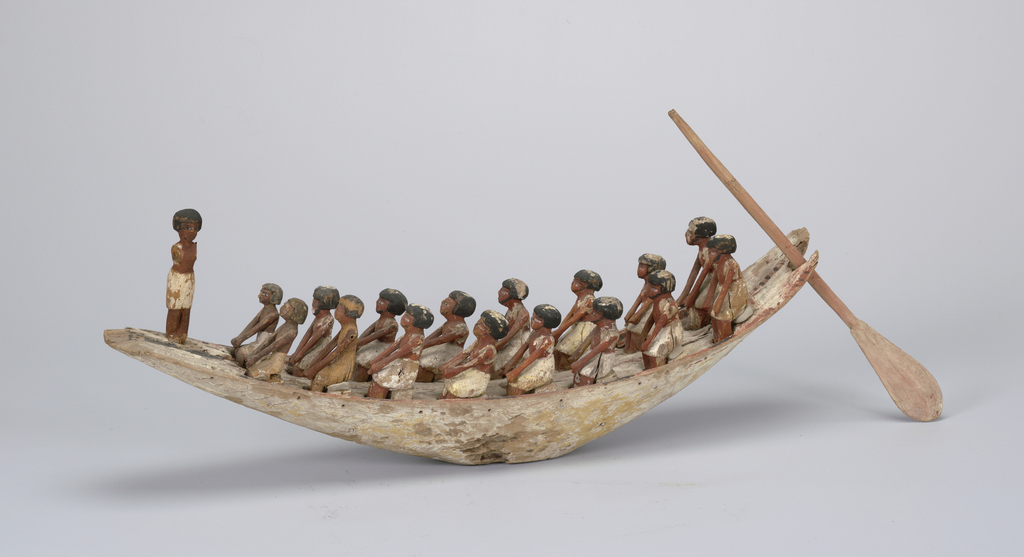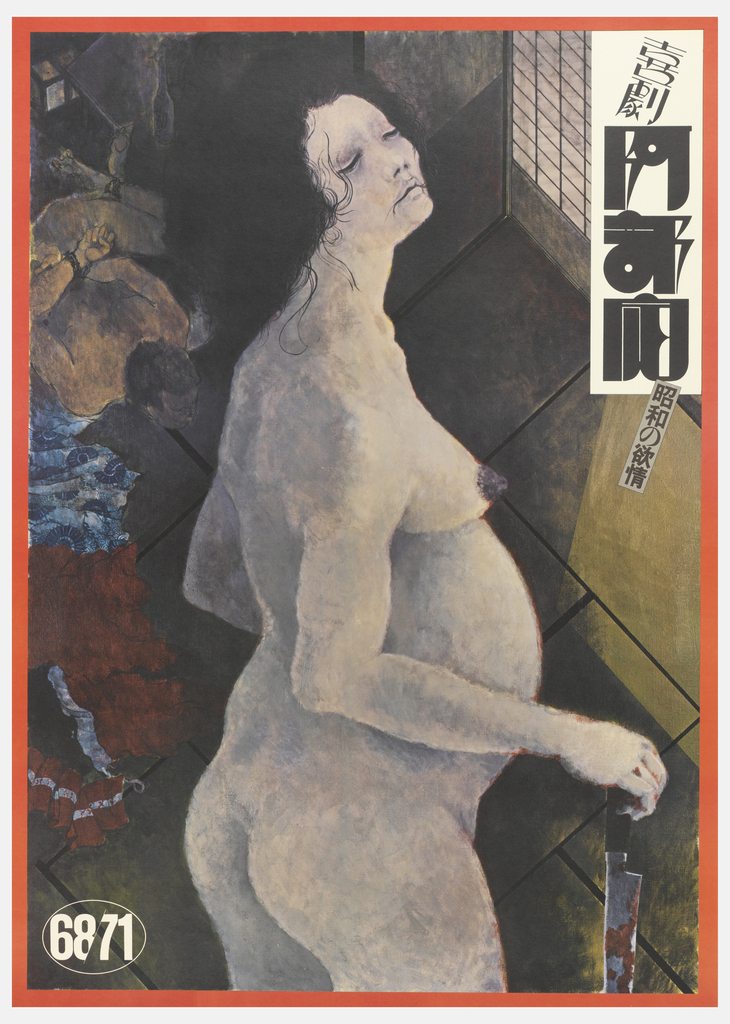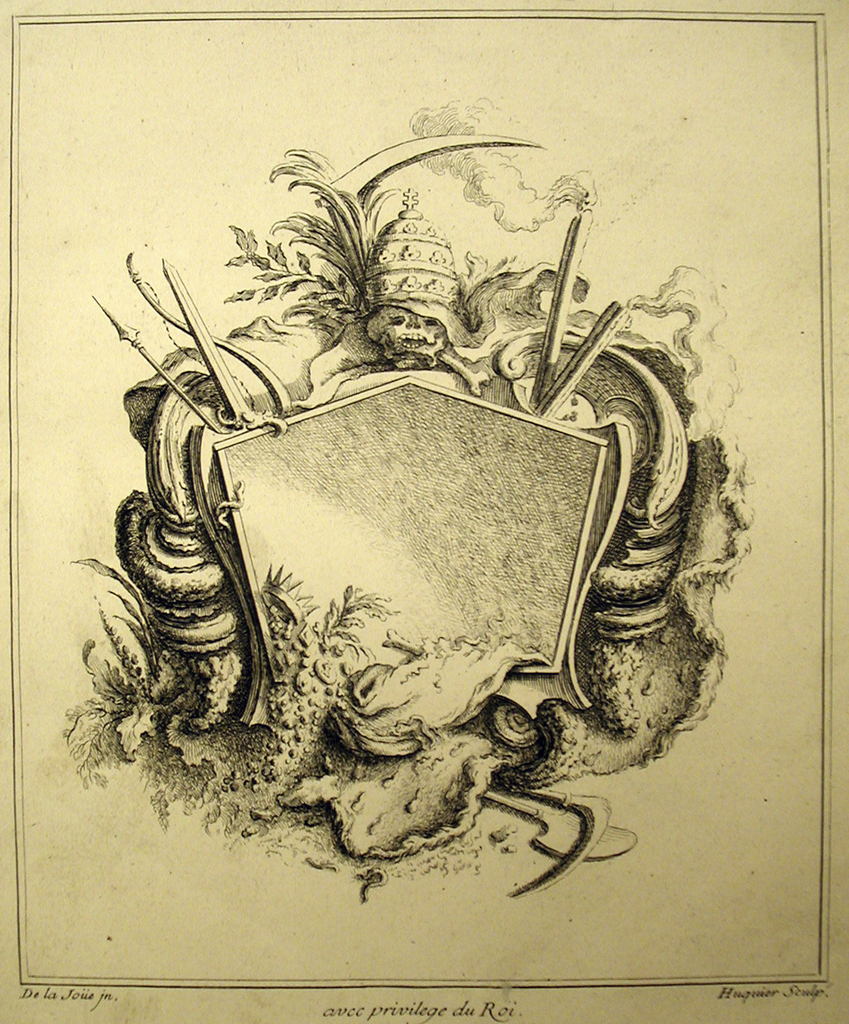This reliquary vase, created by Matt Nolen, is featured in the exhibition, The Virtue in Vice, currently on view at Cooper Hewitt. The vase was selected as a visual interpretation of greed, here defined as the acquisition of large sums of money, universally recognized as the hallmark of avarice. Though tongue-in-cheek, Nolen’s reliquary pointedly illustrates...
When she stitched this family register sampler at the age of nine, Eliza Ann Hunt had lost both her mother and her step-mother. She commemorates her father’s two marriages within three interlaced hearts: the first contains his name and birth date, the second encloses the names and birth dates of his two wives, and the...
While the wooden boat model pictured here might seem like something created as a toy or a builder’s model, for the ancient Egyptians it actually was an important piece of religious and funerary equipment. Water played an important role in the ancient Egyptian’s daily lives, since the Nile River acted as a sort of ancient...
This is a poster for a stage play called Abe Sada (阿部定) performed by a Japanese experimental theatre company called Black Tent Theatre in 1973. The story of the play is based on a true murder case that rocked Japan in 1936, a notorious crime that is the central focus of the poster. At first...
This is a design for a cartouche by the French académician, ornemaniste, and painter Jacques de Lajoüe (1687- 1761). It was etched by Gabriel Huquier as plate 4 in his Second book of Cartouches (Deuxième livre de Cartouches), which was published in 1734 (as established by Roland Michel). The ascribed date locates this at a...
Angela Riechers is a student from an interdisciplinary graduate-level course on the Triennial taught by the Triennial curatorial team. Her first post titled “Green Burials: Recycling Our Loved Ones” appeared on the Design Blog July 9th and was met with a huge response. We figured a follow up was warranted! Despite the 21st century’s...
Over the next two weeks on the Cooper-Hewitt Design Blog, students from an interdisciplinary graduate-level course on the Triennial taught by the Triennial curatorial team blog their impressions and inspirations of the current exhibition,‘Why Design Now?’. The Capsula Mundi coffin is designed to allow a body to decompose naturally and provide nourishment for a tree...






